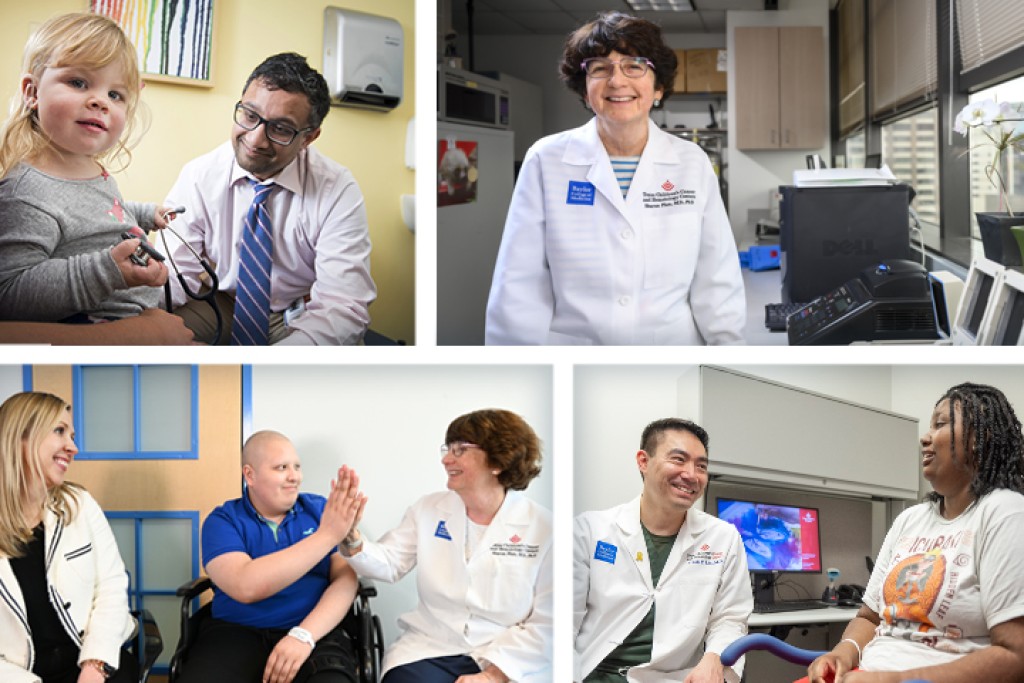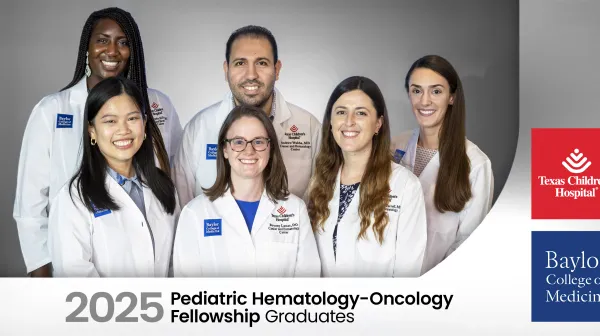
Texas Children’s Hospital is at the forefront of integrating genomic insights into pediatric oncology care. Dr. Will Parsons, recently named Interim Director of Texas Children’s Cancer and Hematology Center, has spent 16 years at the hospital. Over this time, he has witnessed the rise of precision oncology, which has contributed to more precise diagnoses, increased use of targeted therapies and improved patient outcomes for childhood cancers.
Dr. Parsons and his multidisciplinary team at the Center’s Cancer Genetics and Genomics Program, which he co-directs with Dr. Sharon Plon, have led state- and nation-wide clinical trials to guide the clinical implementation of genomics, including development of new genomic tests and evaluation of molecularly targeted therapies. The team’s studies have helped to define the molecular landscapes of numerous high risk pediatric cancers – including brain tumors, sarcomas, liver tumors and histiocytic disorders.

Bringing genomics to clinical practice
One of the early challenges in applying genomic discoveries to pediatric oncology was translating complex sequencing data into clinical practice.
“Our team’s early work was focused on creating genetic encyclopedias of pediatric cancers,” said Dr. Parsons. “We knew the information was valuable, but we then had to figure out how to best translate these discoveries to the clinic.”
To address this, in 2011 Dr. Parsons and Dr. Plon assembled a multidisciplinary team of leading experts from across Texas Children’s and Baylor College of Medicine – including partners in the Departments of Pathology and Molecular and Human Genetics, the Human Genome Sequencing Center, and the Center for Medical Ethics and Health Policy. By bringing together these experts under the unified vision of using genomic information to improve the lives of children with cancer, a series of groundbreaking clinical trials was launched. The first of these, known as the BASIC3 (Baylor Advancing Sequencing into Childhood Cancer Care) study, evaluated the use of clinical exome sequencing of tumor and blood samples for newly diagnosed cancer patients. “BASIC3 opened the door to clinical genomic studies for us, leading to the development of new diagnostic tests at Baylor College of Medicine and Texas Children’s Hospital. Other trials built upon this foundation, including the Texas KidsCanSeq study, which helped to further refine genomic testing methods for children cancer from across the state of Texas.”
These studies enrolled more than 900 patients and 1,300 parents (as well as the treating oncologists), yielding valuable insights into the use of molecular profiling. The studies also enabled the development of best practices for communicating genomic testing results to families, and shed light on key ethical and social considerations related to genomic testing. A key focus of these studies has been making genomic testing accessible and meaningful for all patients treated at Texas Children’s, including Spanish-speaking families, who make up nearly 40% of Houston households—one of the highest percentages among major U.S. cities.

Pediatric MATCH and targeted therapy trials
Since 2015, Dr. Parsons has served as a study chair for the National Cancer Institute-Children’s Oncology Group (COG) Pediatric MATCH trial, the first nationwide precision oncology trial for children, adolescents, and young adults with relapsed or refractory solid tumors, lymphomas or histiocytoses. Pediatric MATCH sought to increase access to genomic testing and trials of novel molecularly targeted therapies for patients from across the United States. Enrollment in Pediatric MATCH was completed at the end of 2024, with patients enrolled at more than 130 COG sites in the U.S. Results from the trial, including analysis of the tumor testing results, have been published in the Journal of Clinical Oncology (JCO), the Journal of the National Cancer Institute, JCO-Precision Oncology, and The Oncologist.
“This trial was designed to identify patients whose cancers haven’t responded to standard treatments, sequence their tumors to identify genetic alterations and match them with targeted therapy trials,” said Dr. Parsons. “Since 2017, more than 1,300 patients have been screened.”
About 30% of patients who had their tumors sequenced were eligible to receive one of 13 investigational agents being tested in individual phase 2 clinical trials. The MATCH trial has contributed to an improved understanding of the genomics of refractory pediatric cancers and the toxicities and efficacy of molecular targeted therapies. Additionally, it was the first nationwide precision oncology study, pediatric or adult, to conduct and ahre germline testing results with patients’ oncologists. This enabled findings to be used to assess inherited cancer susceptibility, and inform future cancer risks, family screening and other preventive strategies. Researchers continue to publish findings for each Pediatric MATCH study arm, including treatment results and genomic analyses.

Early detection and future directions
Beyond treatment, genomic medicine is now playing a role in identifying inherited cancer risks and facilitating early detection strategies.
“We’re moving toward using sequencing not just to treat diagnosed cancer but also to identify those with inherited genetic risk,” said Dr. Parsons. “If a child inherits a high-risk mutation, there is the potential to detect it early in life and start active surveillance before cancer develops, allowing more effective treatment.”
Through nationwide collaborations, the Texas Children’s team is now initiating studies to determine how to effectively and ethically conduct cancer susceptibility screening using DNA obtained from newborn blood spots. “While it will be a challenge to make screening reliable and cost-effective, we believe we can build upon existing methods and our practical experience with genomic testing for this purpose,” said Dr. Parsons. “Early detection gives us the best chance to intervene and improve outcomes.”
A call to action for pediatric oncologists
Successfully treating children with rare, relapsed or difficult-to-diagnose cancers depends on collaboration with referring providers. Pediatric oncologists are encouraged to consider Texas Children’s for patients who may benefit from genetic and molecular testing.
“We want referring providers to know that Texas Children’s offers unparalleled access to precision oncology and clinical trials,” said Dr. Parsons. “By working together, we can bring the latest genomic discoveries to patients who need them most.”
For more information on genomic testing and targeted therapy trials, refer a patient or request a second opinion online.





